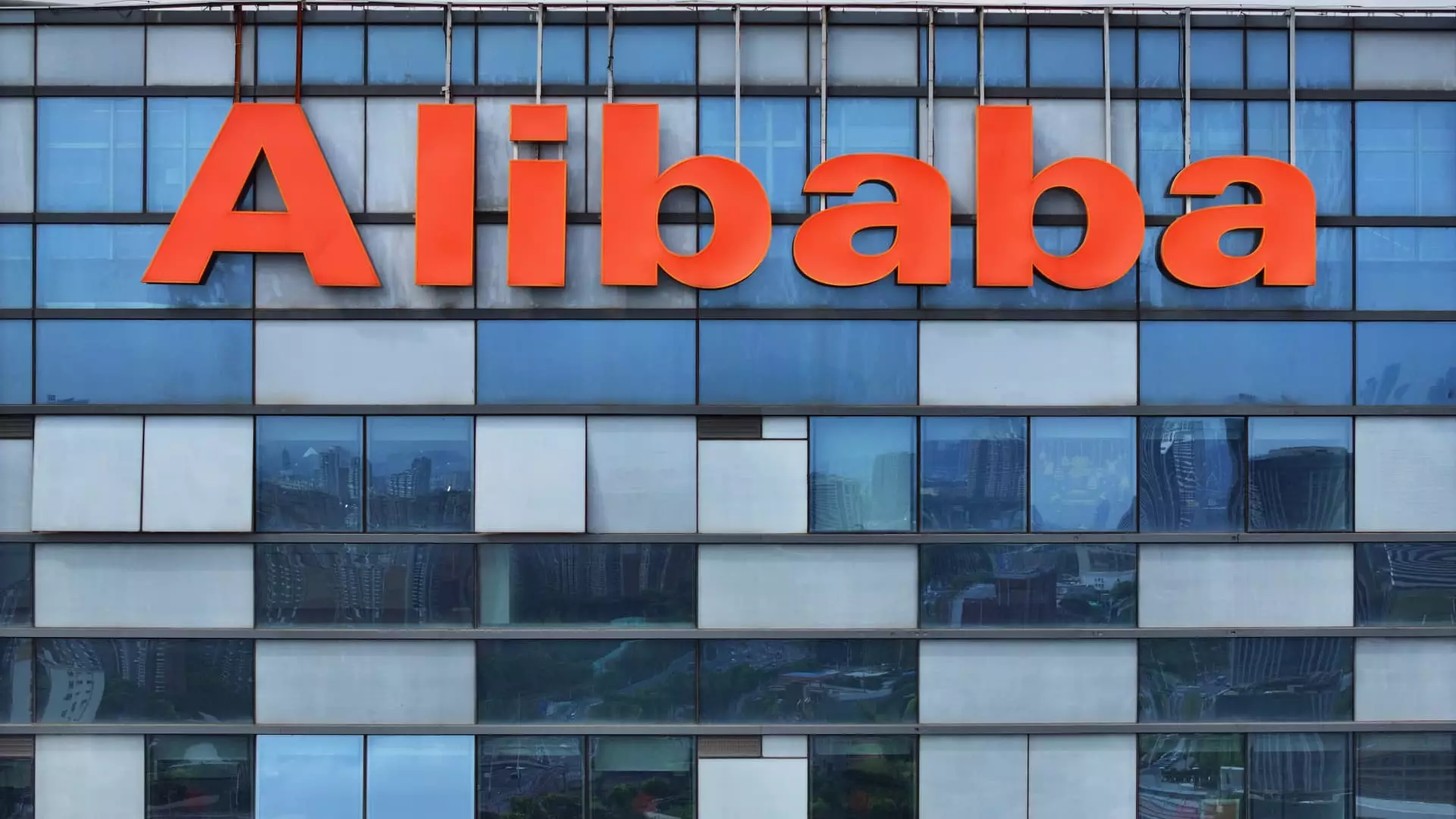In recent months, Alibaba Group Holding Limited has seen a remarkable uptick in its stock value, particularly reflected in the Hong Kong market. This rise was propelled largely by the company’s exemplary quarterly financial performance, demonstrating robust growth in both its cloud intelligence and e-commerce sectors. With a surge of nearly 11% at one point during trading, Alibaba’s stock finished with a commendable increase of 9.18%, signaling heightened investor confidence.
Analysts, including those from Nomura, have offered bullish predictions for Alibaba’s e-commerce operations, expecting sustained growth in the first half of the fiscal year 2025. A significant contributing factor to this optimistic outlook is the Chinese government’s strategic initiative to stimulate consumer spending through substantial trade-in subsidies. This policy is reinforced by an anticipated allocation of 300 billion yuan (approximately $41.5 billion) for ultra-long special government bonds aimed at upgrading consumer goods and equipment.
Senior equity advisor Vey Sern Ling from UBP elaborated on the conversing dynamics within the domestic e-commerce sector, asserting that it is rebounding toward a phase of sustainable profitability. The revitalization of e-commerce is acting as a catalyst not only for Alibaba but for the broader Chinese technology landscape, thereby generating favorable investment sentiments across the sector.
The past year has also marked a pivotal moment for the Chinese tech industry as companies like Alibaba witness an unprecedented focus on artificial intelligence (AI). The emergence of AI startups, notably DeepSeek, which presents its R1 model as a potential challenger to the dominant U.S. tech ecosystem, has invigorated the market. Analysts predict that the next three years will be crucial for Alibaba, as it channels substantial investments into AI and cloud infrastructure, indicative of a strategic pivot towards advanced technology solutions.
Barclays has noted that Alibaba is making “significant strides” in enhancing its AI cloud capabilities, particularly after unveiling its Qwen 2.5-Max AI foundation model, which has attracted increased demand for AI inference services. This demand is contributing to a broader trend where AI-related services account for approximately 70% of Alibaba’s new business engagements. Nevertheless, Barclays warns that these promising opportunities necessitate significant capital investment—potentially exceeding the total amount invested in AI and cloud setups over the past decade.
Additionally, the specter of regulatory challenges looms over Alibaba, especially considering the heightened scrutiny from Chinese authorities that started back in 2020. In a rare public appearance, Jack Ma, Alibaba’s founder, recently engaged in a private dialogue with President Xi Jinping, who urged private enterprises like Alibaba to showcase their strengths and adapt to the evolving economic landscape. This interaction could signal a potential thawing of the stringent regulations that have hampered Alibaba and its peers in the past years.
Alibaba’s impressive quarterly results reflect not only leadership and innovation but also resilience in the face of adversity. The company reported a net income of 48.945 billion yuan ($6.72 billion), which surpassed market expectations by a noteworthy margin. Analysts had projected a net income of around 40.6 billion yuan, but Alibaba’s actual figures exceeded this estimate by over 20%. The company’s revenue of 280.15 billion yuan also outpaced analysts’ predictions, marking a significant turnaround from the previous year’s financial results.
As Alibaba navigates through this complex landscape, the latest developments signify a turning point as the company adapts to government policies, revives consumer confidence, and accelerates its technological investments. While challenges remain, including potential regulatory pressures, the current trajectory suggests a reinvigorated Alibaba ready to capitalize on both domestic and global market opportunities. The coming years may define not only Alibaba’s future but also the broader realm of Chinese technology as it seeks to reclaim its competitive edge in a rapidly evolving global market.

